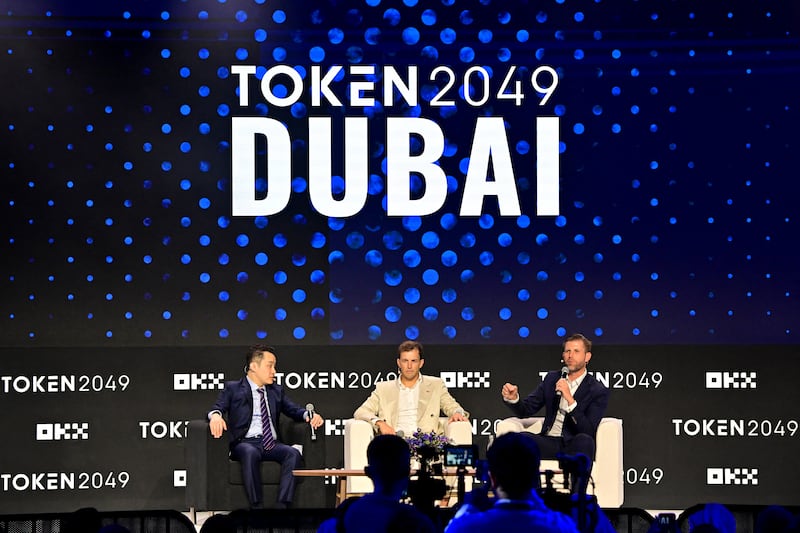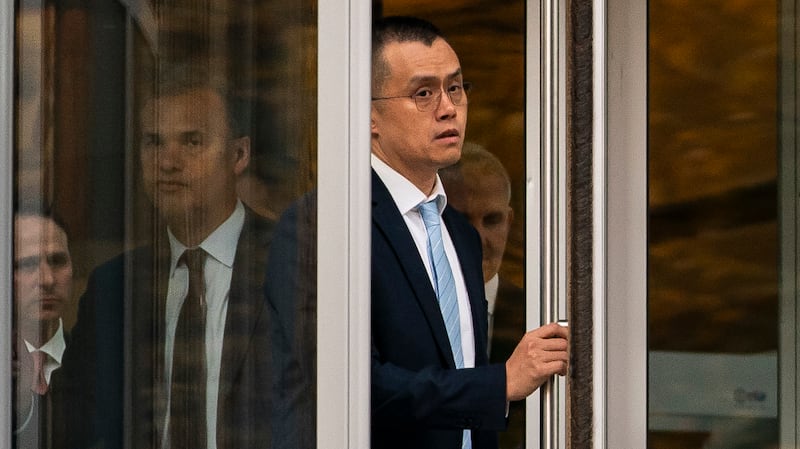Crypto giant Binance helped create and promote the Trump family’s stablecoin just months before its founder applied for a presidential pardon, according to a new report.
President Donald Trump once called Bitcoin a “scam” but has since embraced cryptocurrency, saying he wants to make the U.S. the “crypto capital of the world.”
His sons Eric and Donald Trump Jr. launched a crypto company called World Liberty Financial last year and released their stablecoin USD1—which is pegged to the U.S dollar—in March.
It turns out, though, that the basic code that powers USD1 was secretly written by Binance, the crypto exchange founded by Changpeng “CZ” Zhao, who is seeking a presidential pardon, sources told Bloomberg.

That code allowed an Emirati investment firm to buy a $2 billion stake in Binance using USD1 instead of a competitor coin, according to Bloomberg. Binance also promoted USD1 to its 275 million users.
Around the same time that USD1 was released, Binance and World Liberty denied reports that they were in talks to develop a new stablecoin.
It’s not clear whether World Liberty paid Binance or Zhao to create the coin, Bloomberg reported.
The assets backing the $2 billion in USD1 currently sitting in Binance wallets could generate tens of millions of dollars per year for the Trumps in interest income alone, according to the outlet.
Regulatory filings by another stablecoin issuer, Circle Internet Group Inc., also offer some insight into the market value of World Liberty Financial’s relationship with Binance. Circle paid Binance $60 million up front to promote its coin and agreed to share future revenue with the exchange.
In 2023, Zhao and Binance were accused of violating federal U.S. laws designed to prevent money laundering. Both pled guilty, and Zhao paid a $50 million fine and stepped down from the company, which also paid $4.3 billion in fines.

Zhao was also sentenced to four months in prison after pleading guilty to felony money laundering charges. In March he denied seeking a pardon from the Trump administration, only to say in May that he had applied for one after all.
A spokesperson for Binance told Bloomberg that Zhao was no longer with the company and that his decision to apply for a pardon was “a personal one.” A White House spokesperson declined to comment to Bloomberg. The Daily Beast has also requested comment.
A World Liberty spokesperson told the outlet that the report’s claims were “factually deficient and designed to further a political agenda,” though she declined to respond to specific questions and set the record straight.
The post Crypto Giant Accused of Secretly Helping Trump Company Before Founder Pushed for Pardon appeared first on The Daily Beast.




